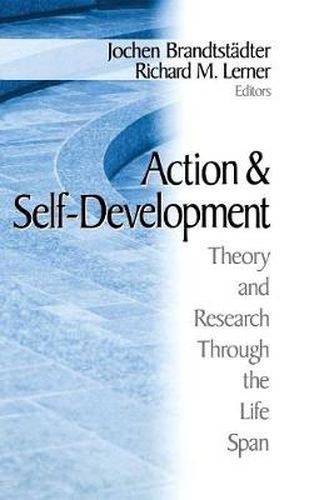Readings Newsletter
Become a Readings Member to make your shopping experience even easier.
Sign in or sign up for free!
You’re not far away from qualifying for FREE standard shipping within Australia
You’ve qualified for FREE standard shipping within Australia
The cart is loading…






‘This volume presents the reader with a stimulating rich tapestry of essays exploring the nature of action and intentionality, and discussing their role in human development. As the contributions make clear, action is an integrative concept that forms the bridge between our psychological, biological, and sociocultural worlds. Action is also integrative in the sense of entailing motivational, emotional, and cognitive systems, and this integration too is well represented in the chapters. Action is defined, and distinguished from behavior, according to its intentional quality. Thus, a constantly recurring theme in the volume involves the dialectic of action-intentionality, and specifically the questions of how and when these concepts are to be distinguished. For action theorists, action-as distinguished from behavior-constitutes the fundamental mechanism of human development. This commitment is detailed in several essays that explore the life-span implications of action. This timely volume will be must reading for all who want to learn about, or stay current with, contemporary action theoretical approaches to human development’ - Willis F. Overton, Temple University
$9.00 standard shipping within Australia
FREE standard shipping within Australia for orders over $100.00
Express & International shipping calculated at checkout
‘This volume presents the reader with a stimulating rich tapestry of essays exploring the nature of action and intentionality, and discussing their role in human development. As the contributions make clear, action is an integrative concept that forms the bridge between our psychological, biological, and sociocultural worlds. Action is also integrative in the sense of entailing motivational, emotional, and cognitive systems, and this integration too is well represented in the chapters. Action is defined, and distinguished from behavior, according to its intentional quality. Thus, a constantly recurring theme in the volume involves the dialectic of action-intentionality, and specifically the questions of how and when these concepts are to be distinguished. For action theorists, action-as distinguished from behavior-constitutes the fundamental mechanism of human development. This commitment is detailed in several essays that explore the life-span implications of action. This timely volume will be must reading for all who want to learn about, or stay current with, contemporary action theoretical approaches to human development’ - Willis F. Overton, Temple University